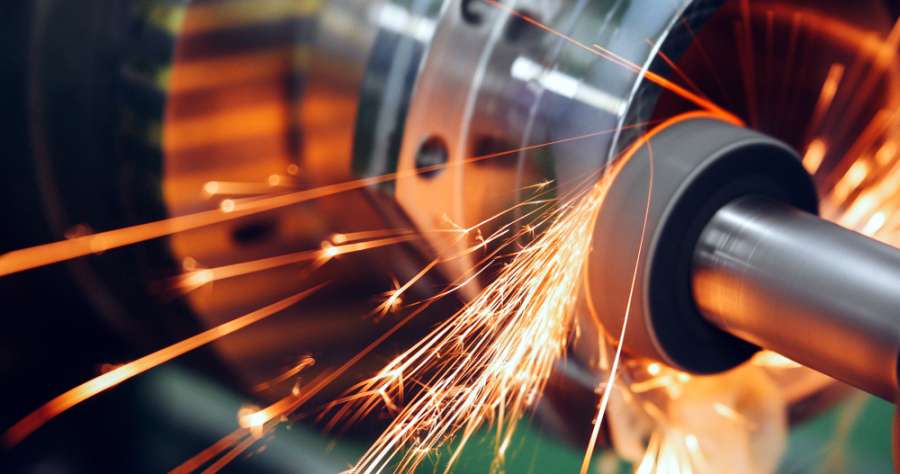When considering the purchase or sale of any business, there are numerous matters that should be considered at the outset. The purchase or sale of a manufacturing business has some distinct issues that should be considered at an early stage of the transaction, in particular how to deal with plant and machinery and stock/inventory. We’ve set out some tips which attempt to highlight potential pitfalls and how to try to avoid or mitigate them when negotiating a purchase or sale of a manufacturing business.
Plant and Machinery
Condition and Maintenance
Plant and machinery will not operate throughout its economic life without deteriorating, resulting in faults and requiring appropriate repairs and maintenance. Due diligence (as a paper exercise) is unlikely to assist in identifying the condition and maintenance of plant and machinery. For example, reviewing maintenance or historic repair records will only reveal certain information and would not act as a true indication of the current condition of the plant and machinery (or the potential future costs of repair and maintenance). This means that a physical inspection of plant and machinery is paramount so that a buyer can try to ascertain the remaining serviceable use of the machinery.
Depending on the condition, a price adjustment could be made in favour of the buyer if the equipment is not in good working order. A seller is likely to be resistant to a warranty relating to the future performance of machinery or whether repairs will be required. A price adjustment in these circumstances is much more likely.
Aside from a full inspection of all plant and machinery prior to completion (which is not always possible/feasible), a buyer should ensure sufficient warranty coverage for the condition and maintenance of plant and machinery.

Recovering costs to repair/replace equipment
To the extent that the plant or machinery is not of an acceptable condition or is not properly maintained by the seller prior to completion, the buyer should have the ability to make a recovery for any costs to repair/replace the equipment following completion, along with any associated losses such as a loss of profit due to an inability to fulfil customer orders. To the extent that this failure also constitutes any breach of law (such as health and safety or environmental laws) or industry standard practice, the buyer should have an ability to make a recovery for losses associated with this breach (for instance, claims from employees injured in the use of faulty or incorrectly maintained plant and machinery).
A seller should ensure that any warranty coverage is appropriately limited in scope and made subject to (and so not responsible for) any known issues and normal wear and tear. A seller should also be wary of any warranties that relate to future use, condition or maintenance of the plant and machinery after completion of the sale, as it is difficult, if not impossible, to predict whether maintenance or repairs will be required in the future. A seller may decide to facilitate an inspection of plant and machinery by the buyer prior to completion and make any warranty coverage subject to the buyer’s knowledge based on that inspection. This places the burden of risk on the buyer if they note an issue but decide to proceed to completion of the transaction notwithstanding that issue. Finally, a seller should try to qualify its liability in relation to warranties regarding plant and machinery as far as it is able by disclosing maintenance records, details of historic repairs or known issues to the buyer.
Is the plant and machinery owned by the business?
It is important to confirm if the plant and machinery operated by the business were purchased on a hire purchase basis (meaning that a third party retains an interest in the asset) or if it is owned by the business outright.
Any buyer should consider whether any hire purchase arrangements are to be repaid prior to completion, or if not, that they are content to assume the debt following completion. To the extent that the debt is assumed, it should be checked that the hire purchase does not have any change of control provisions – if so, permission may be required; otherwise, the debt may become due immediately following completion. If the business is sold via an asset sale, it will be necessary to assign the hire purchase agreements, which will require the consent of the third party.
It is also important to confirm if plant and machinery are subject to any security in favour of a bank or third party, such as security for lending or invoice financing. Any plant and machinery (along with other business assets) subject to third-party security is likely to require permission from the lender before completion. Failure to seek such consent could result in the underlying debt that the security relates to being immediately repayable or permit the lender to enforce their security following completion and take control of the plant and machinery, which any buyer would want to avoid.
A seller is likely to be required to provide warranties regarding title to the assets of the business, and a failure to confirm whether plant and machinery are subject to hire purchase arrangements or security would be a breach of such warranties. It is, therefore, in both parties’ interests to confirm and/or disclose this prior to completion.

Stock / Inventory
The remaining stock at the time the business is to be sold constitutes an asset on its balance sheet, but the value of the stock is not always easily ascertainable. For example, there may be stock that is incomplete and/or at an early stage in the manufacturing process, stock may be damaged, or stock may otherwise be obsolete and therefore cannot be sold without discounting it.
In a manufacturing business, a buyer should carefully consider the level of stock in the business at completion. This is to ensure that a seller does not overstock the business to increase the price (depending on the valuation assumptions, stock is usually included as an asset in a calculation of working capital) or understock the business before the sale to increase cash reserves and enable the seller to extract additional value from the business before completion (if it is a cash free/debt free calculation with no other adjustment). If there is a concern, this should be subject to appropriate warranty and/or indemnity coverage. A joint stock take is often carried out prior to completion to mitigate such risks for both the buyer and the seller.
Completion Accounts
The price paid for the acquisition of a business can be subject to an adjustment following completion. This would, on a sale/purchase of a company, normally be based on specific financial/accounting metrics agreed between the parties prior to completion. For instance, a company may be sold on a cash-free, debt-free basis or with an agreed target level of working capital (or perhaps net assets) that is then determined by completion accounts after completion. Such accounts are produced by reference to an agreed financial reporting standard, along with negotiated accounting policies that are bespoke to the transaction. If these provisions are vague or not sufficiently negotiated prior to completion, the adjustment may not be favourable to one of the parties.
Stock is usually (though not always) valued at the ‘lower of cost and net realisable value’. This means that stock should be valued at the lower of its cost or the amount at which it can be sold on the open market. This phrase can cause difficulty for a seller because there may be abnormal costs in the production process that the buyer may argue should not be included in the cost and should therefore be written off. A seller may wish to ensure that no such costs are written off without a specific agreement. Certain stock that a seller may view as realisable may be viewed by a buyer as obsolete, either due to the age of the stock or its condition. Clear and detailed accounting policies for valuation and determining stock status should therefore be carefully negotiated prior to completion of the transaction.

Contact Our Manufacturing Solicitors
If you have any more questions or would like more information regarding the purchase or sale of a manufacturing business, you can contact our Manufacturing Solicitors below.
